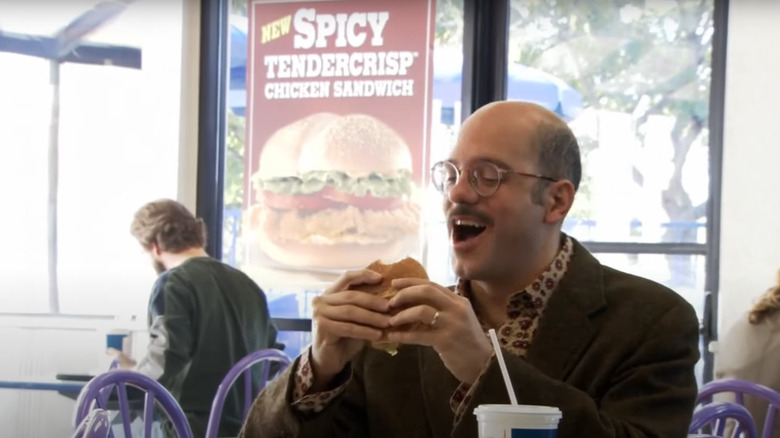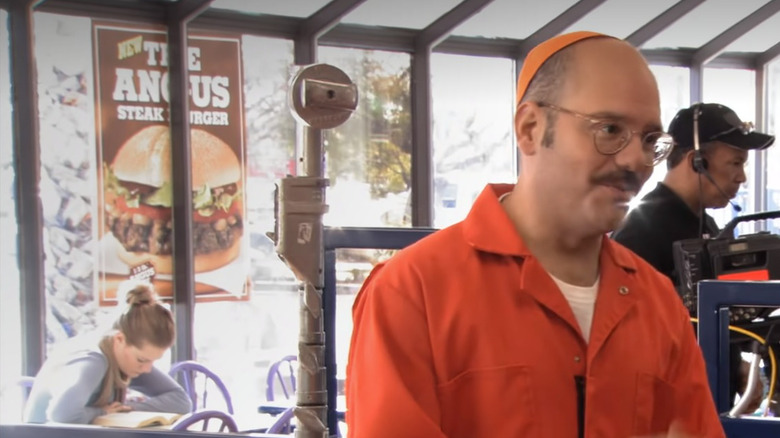Is Arrested Development's Burger King Product Placement The Best? It Sure Is
This is the story of a wealthy family who lost everything and the one fast-food burger chain that had no choice but to tune in to try to figure out why they'd just paid a bunch of money to get associated with butts and noted combination analyst/therapist Tobias Fünke (David Cross).
It was March of 2005, and the Bluth family had entered into another in a series of questionable business partnerships. With a season and a half already under their belts, "Arrested Development" was still struggling to find an audience, an obstacle that would shape the series in ways that would eventually change the business models of entire studios, but which, for the moment, mostly meant that the show needed to bring in some cash.
That's where Burger King came in, offering an influx of money in exchange for some red-blooded American product placement. Did they get exactly what they wanted? It's hard to imagine that they did — but it certainly yielded hilarious results.
'It's a wonderful restaurant!'
Burger King makes its first in-universe appearance on "Arrested Development" in the Season 2 episode "Motherboy XXX," and it's not exactly subtle. Over an exterior shot of Burger King, narrator Ron Howard announces that "Tobias met with Carl Weathers at Burger King." Then Carl, playing himself, thanks Tobias for meeting him at Burger King. Then they talk about how great it is to get money from product placement, as long as you're not too obvious about it, intercut with more exterior shots of Burger King. Carl ends the conversation by asking Tobias if he knew he could get free refills on any soda, to which Tobias replies "it's a wonderful restaurant!" and the narrator agrees, "it sure is."
The cheeky product placement was a gamble on the intelligence of a media-savvy audience, and Burger King was seemingly in on the joke. "In terms of their image, Burger King is willing to have fun with themselves in a way they believe the consumer finds engaging. On the basis of sales, they've been proven right," a representative for the company said in a 2006 interview with the Los Angeles Times. The meta-comedy almost went even further. Dig around the internet archives and you'll see that the episode was originally titled "The Tendercrisp Chicken Comedy Half Hour."
The whole thing does beg the question: Did Burger King's willingness to take a joking hit extend to the fact that the first "G" in all of the "Angus Burger" posters was conspicuously obscured in every shot? If so, then they sure are a wonderful restaurant.

